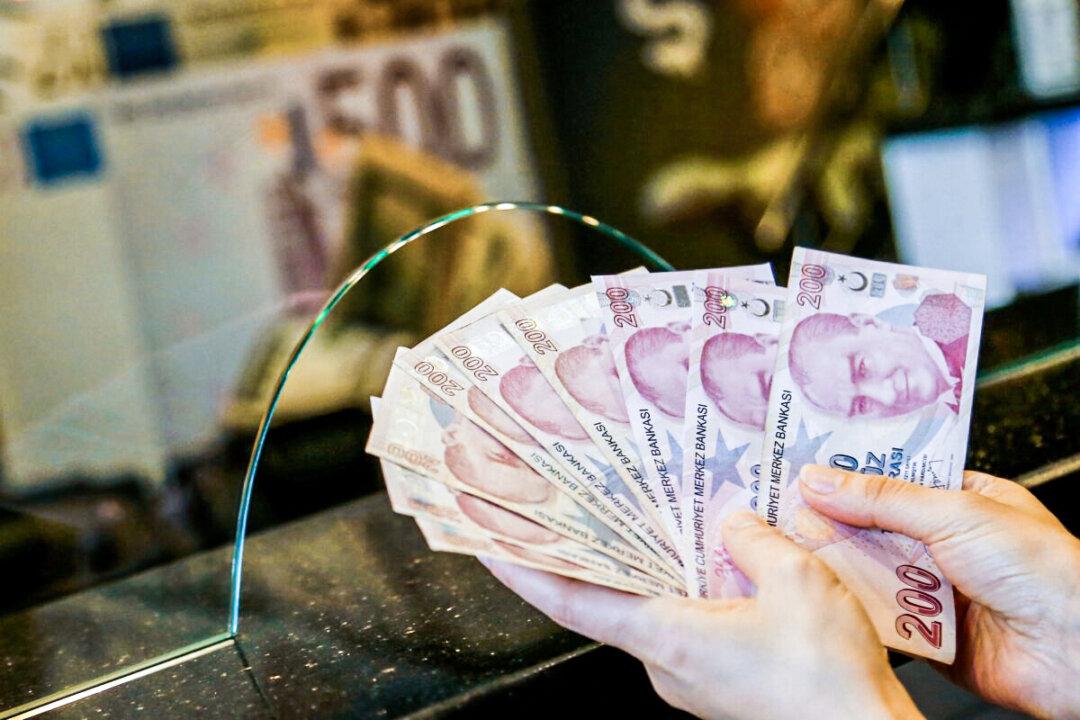ISTANBUL—The Turkish lira skidded to another all-time low of 9.85 on Monday after President Tayyip Erdogan said he had ordered the expulsion of ambassadors from the United States and nine other Western countries, risking a diplomatic rift.
Concerns over possible fallout for foreign investment, combined with unease over the central bank’s surprisingly sharp rate cut last week, stoked market volatility and sent Turkey’s sovereign dollar bonds tumbling.





